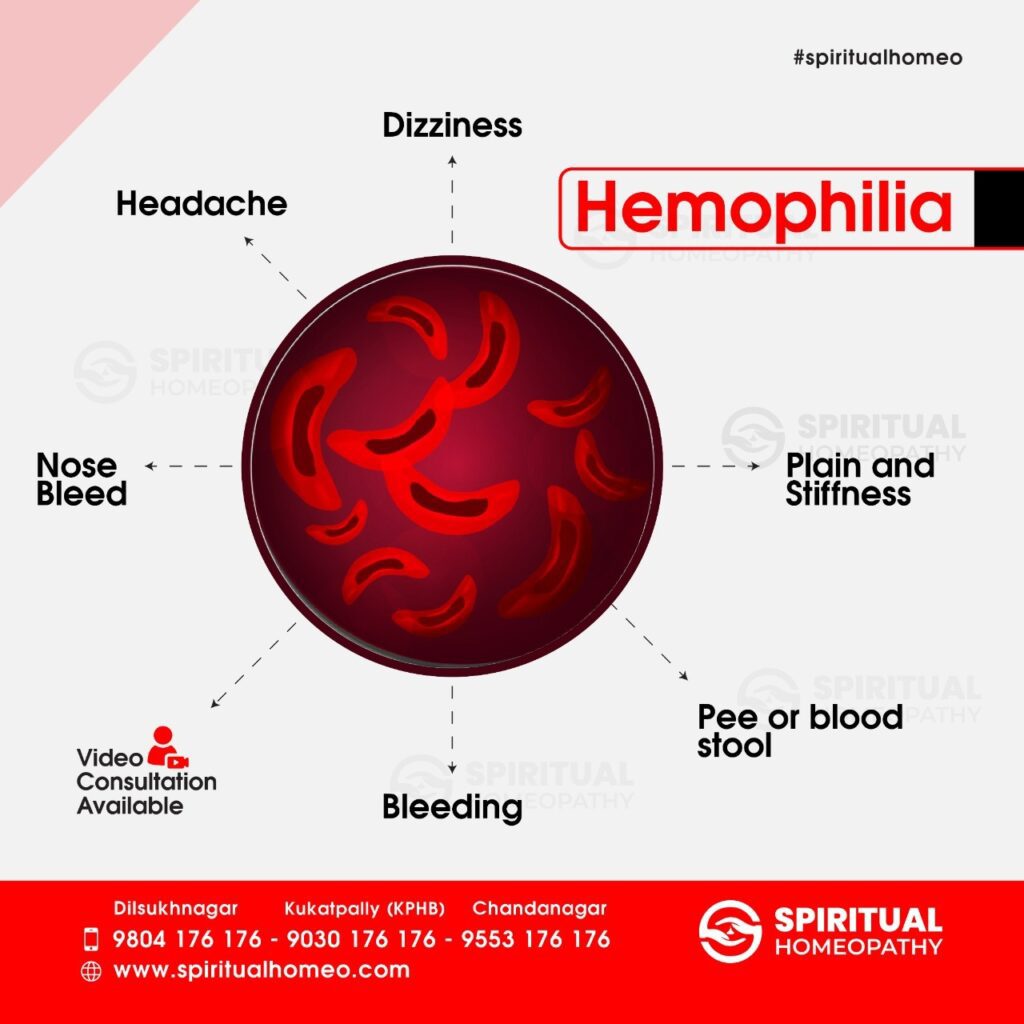Hemophilia is a rare genetic disorder that impairs the blood’s ability to clot properly. The severity of symptoms can vary, depending on the degree of deficiency in the clotting factors. There are two main types of hemophilia: Hemophilia A, which results from a deficiency of clotting factor VIII, and Hemophilia B, which is caused by a deficiency of clotting factor IX. Here are the common symptoms associated with hemophilia:
Excessive Bleeding: Individuals with hemophilia tend to bleed for a more extended period than those without the condition. The severity of bleeding can range from mild to severe, and it can occur spontaneously or as a result of injury.
Bruising: Easy bruising is a common symptom of hemophilia. Minor bumps or injuries can lead to the development of large, deep bruises.
Joint Pain and Swelling: Hemarthrosis, or bleeding into the joints, is a common complication of hemophilia. This can cause pain, swelling, and limited range of motion in the affected joints. Recurrent joint bleeding can lead to chronic joint damage.
Muscle Bleeds: Bleeding into muscles can cause pain, swelling, and stiffness. This can occur spontaneously or as a result of trauma.
Excessive Bleeding After Surgery or Dental Work: Individuals with hemophilia may experience prolonged bleeding after surgeries or dental procedures. This can be a significant concern and may require specific interventions to control bleeding.
Nosebleeds: Frequent or prolonged nosebleeds can be a symptom of hemophilia, particularly in cases of moderate to severe forms of the disorder.
Blood in Urine or Stool: Gastrointestinal bleeding may occur, leading to the presence of blood in urine or stool.
Excessive Bleeding in Infants: In severe cases of hemophilia, infants may experience spontaneous bleeding, particularly in the mouth or after circumcision.
It’s important to note that the severity of hemophilia can vary widely among individuals, even within the same family. Treatment for hemophilia often involves replacement therapy, where the deficient clotting factor is infused into the bloodstream to help control bleeding. Additionally, preventive measures, such as avoiding activities that may result in injury, are often recommended to manage the condition effectively. Individuals with hemophilia should receive care from a specialized healthcare team, often including hematologists and other healthcare professionals with experience in bleeding disorders.



